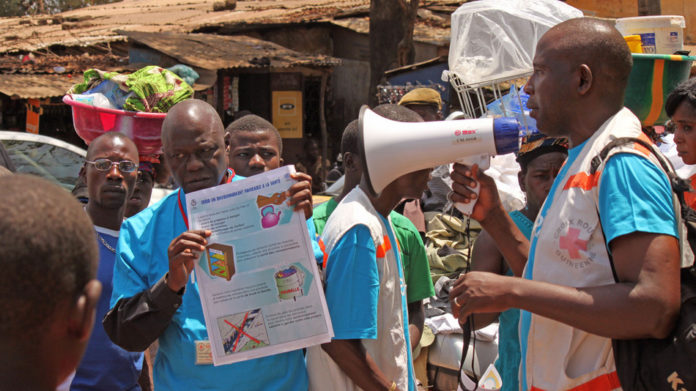Sierra Leone’s Top Ebola Doctor, ‘National Hero’ Contracts the Virus

Sierra Leone’s top Ebola doctor has reportedly saved over 100 patients from the deadly disease — now he will have to fight it within his own body.
Sheik Umar Khan, 39, is a virologist whom Sierra Leone’s health minister called a “national hero” for his efforts to fight the spread of the Ebola virus. He is now receiving treatment at a center run by the NGO Médecins Sans Frontières (Doctors Without Borders), according to a Reuters report. Though he is reportedly alive, his current condition is unknown.
Khan acknowledged the risk he was taking back in June, when he told Reuters that treating patients had him “afraid for my life.” That risk was heightened just this past week when three nurses died after contracting the virus in the same treatment center where Khan worked. Medical staff, including Khan, reportedly protect against possible infection by wearing goggles, gloves, a mask and other protective clothing, but the risk of contracting it cannot be fully eliminated for health workers.
Ebola can be transmitted through direct contact with anyone infected, contact with contaminated objects or touching the secretions of someone who has the virus. There is no cure, and the most deadly strains of the virus can kill up to 90% of victims. It is a violent virus whose symptoms include everything from fever and soreness to massive internal bleeding.
The current outbreak in parts of West Africa has so far killed around 60% of those infected across Sierra Leone, Liberia and and Guinea. Over 1,000 people have been infected so far, according to the World Health Organization, and over 600 have died in what has become the worst Ebola outbreak in recorded history. Sierra Leone has the most confirmed cases so far, with 442.
The Ebola outbreak has reportedly been difficult to control in part because local authorities have not effectively communicated the dangers of the virus, which has resulted in a denial of its severity in affected communities. The World Health Organization is working to improve public awareness about the dangers posed by Ebola and says it is taking steps to improve communication between authorities and citizens.
